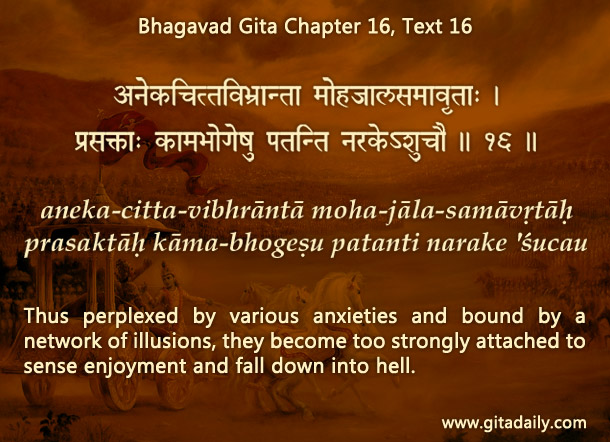Suppose we regularly eat food that is high in calories and low in nutrition. We would soon become bloated and drained. To be more productive, we need to choose food that is high in nutrition and low in calories.
What applies to our physical productivity also applies to our mental productivity. Just as our body is fed by the food we eat, our mind is fed by the various stimuli we take in. Nowadays, we are bombarded by scores of feeds: notifications that pop up on our various devices and demand our attention. Most such stimuli are about random things that aren’t worth our time or thought.
Unfortunately, we often give such stimuli our unfiltered and uncritical attention. And then we find ourselves distracted and drained: we think of many things, yet we hardly think of the things that matter. Eventually, when life forces us to think of the things that matter, we have no mental energy left. The Bhagavad-gita (16.16) cautions that when our consciousness is dissipated in myriad directions, our life becomes hellish.
When we study Gita wisdom regularly, we become more aware of our inner dynamics and more discerning about what we are feeding: our mindlessness or our mind. To feed our mindlessness means to expose ourselves to stimuli that accelerate the thoughtless wandering of our mind from one thing to another without giving due consideration to anything, without even considering whether the things being contemplated are worth contemplating. In contrast, to feed our mind means to give ourselves something worthwhile to think about.
Significantly, the Gita doesn’t just train us to evaluate what we feed ourselves; it is also itself the best food for the mind. Its profound wisdom equips and energizes us to think about the things that really matter.
Think it over:
- How do we become mentally hyperactive and drained?
- How does Gita wisdom help increase our mental productivity?
- What do you regularly feed your mind with? What one thing can you do to improve the quality of those feeds?
***
16.16 Thus perplexed by various anxieties and bound by a network of illusions, they become too strongly attached to sense enjoyment and fall down into hell.
To know more about this verse, please click on the image
Explanation of article:
Podcast:


Perception is the feed of mind